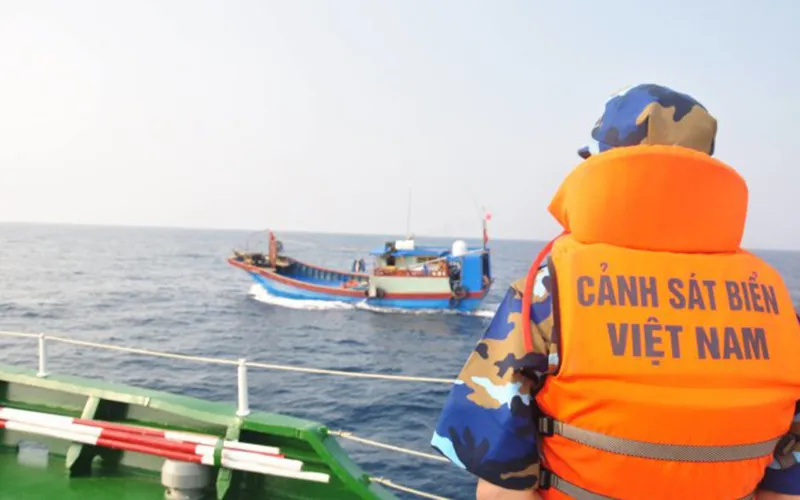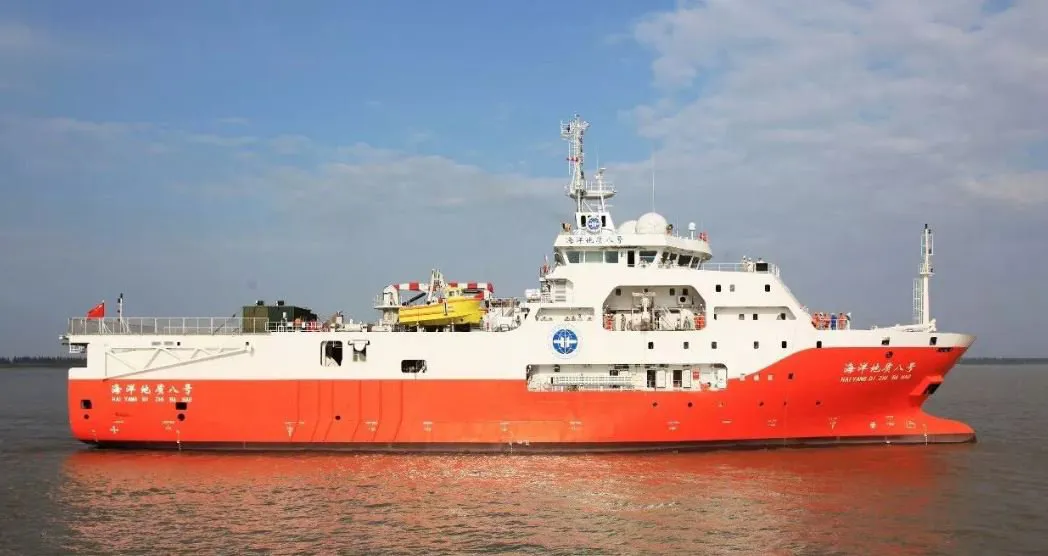Vietnam keeps close watch on all South China Sea developments: Spokesperson
Hanoi has stated that all activities in the South China Sea need to strictly abide by international law, respect sovereignty, sovereign right and jurisdiction of concerned parties in waters defined in UNCLOS 1982.
Vietnamese authorities closely follow developments in the South China Sea, Spokesperson Le Thi Thu Hang of Vietnam’s Ministry of Foreign Affairs has stated amid China’s growing assertiveness in the resources-rich sea.
The Vietnamese forces at sea enforce the law in a peaceful, legal manner to protect Vietnam’s sovereignty, and legitimate rights and interests, Hang said at a press meeting on August 20 when she was asked to comment on information saying Chinese coastguard vessels have been deployed to bloc 06.01 on Vietnam’s continental shelf over the last month.
| A Vietnam Coast Guard official on duty at sea. Photo: Minh Phuong/Tuoi Tre newspaper |
China has claimed over 90% of the South China Sea, which Vietnam calls the East Sea, where one third of world trade passes annually. China sent a giant oil rig into Vietnamese waters in May 2014, which triggered months-long territorial dispute between the two countries.
Over the past two years, Chinese survey and armed coastguard vessels have intruded waters of not only Vietnam but also other claimants in the South China Sea.
In July 2019, China’s survey ship Haiyang Dizhi 8 and armed escorts illegally operated in Vietnam’s Exclusive Economic Zone (EEZ), deteriorating relations between the two neighboring countries with a complicated history of rivalry. The vessels did not leave until late October.
Hanoi persistently made clear that the waters that the Haiyang Dizhi 8 and its escorts were operating in lie “entirely within the sovereignty and jurisdiction of Vietnam”, established by the1982 UN Convention on the Law of the Sea, of which both Vietnam and China are members.
In April this year, the Haiyang Dizhi 8 was deployed to the southern part of the South China Sea, near the location of an oil rig contracted by Malaysia's oil company Petronas.
| China’s survey ship Haiyang Dizhi 8 |
Indonesia, Malaysia, the Philippines and Vietnam, countries that have South China Sea boundaries, and the US and Australia have condemned China’s aggressiveness and bullying activities.
US Secretary of State Mike Pompeo on July 13 stated that “Beijing’s claims to offshore resources across most of the South China Sea are completely unlawful, as is its campaign of bullying to control them.”
Pompeo also said the sea is not China’s maritime empire and urged disputes in this sea to be resolved through international law.
“All activities [in the South China Sea] need to strictly abide by international law, respect sovereignty, sovereign right and jurisdiction of concerned parties in waters defined in the 1982 UN Convention on the Law of the Sea,” Vietnam’s foreign ministry spokesperson stressed on August 20.
Fishing ban
At the press meeting on August 20, commenting on the information that thousands of Chinese fishing vessels might flock to the South China Sea after China’s seasonal fishing ban order expired on August 16, the Vietnamese foreign minister spokesperson said Vietnam has on many occasions made clear its stance on the so-called fishing ban by the Chinese side.
In early May, Vietnam rejected the “unilateral move” when Chinese authorities announced their annual ban with the ostensible goal of preserving fish stocks and improve sustainable ecology in the sea, but the presence of its law enforcement raised concerns of increased risks of confrontations and incidents with boats from other claimant countries in the contested waters.













